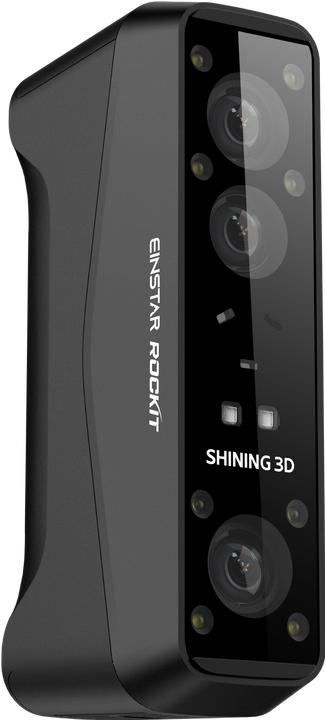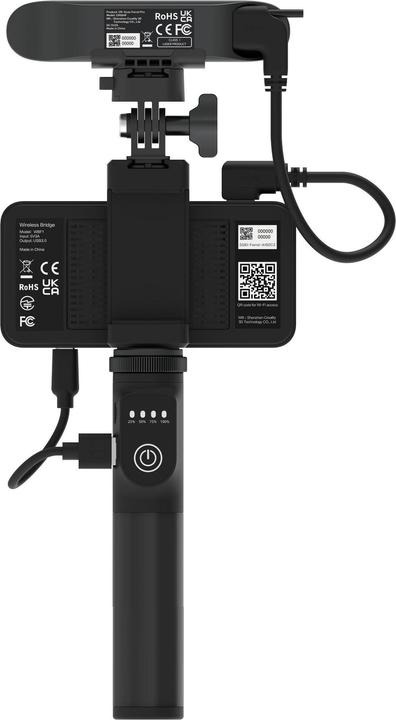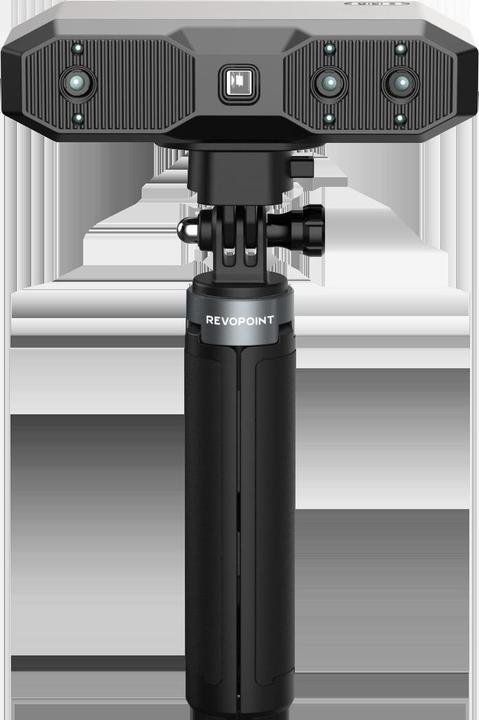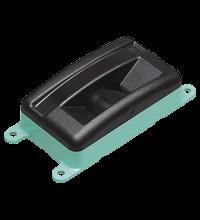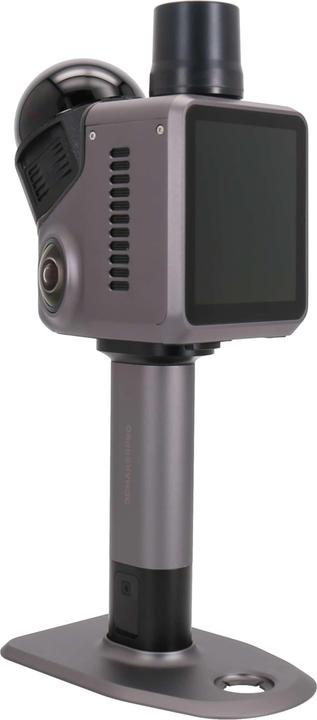
Too Many 3D Scanners? Here's How to Choose the Right One
Discover the key factors to consider when selecting the perfect 3D scanner for your needs.
Last updated 7 hours ago. Automatically generated content.


Select options and limit the number of products
Accuracy in a 3D scanner determines how precisely the scanner can capture the dimensions and details of an object, directly affecting the quality of the digital model produced. Selecting the right accuracy level is crucial for meeting specific project requirements, whether for detailed engineering applications or general use cases.
Popular options (you can select more than one)
0.02 mm
Typical price
990.– to 3900.–Offers high precision suitable for detailed engineering and intricate designs.
Ideal for applications requiring exact measurements, such as manufacturing and quality control.
Bestseller
0.05 mm
Typical price
590.– to 1700.–Provides a balance between precision and speed, suitable for general applications.
Recommended for projects where detailed accuracy is important but not critical, such as product design and development.
Bestseller
0.1 mm
Typical price
250.– to 1200.–Delivers moderate precision, suitable for less demanding tasks.
Best for quick scans where high detail is not necessary, such as rough prototyping and initial concept modeling.
Bestseller
The type of 3D scanner determines how the device captures and processes images and data, affecting its suitability for different applications and environments. Choosing the right type is crucial for achieving accurate scans, whether for professional use, hobby projects, or specific industry requirements.
Popular options (you can select more than one)
Handheld scanners
Typical price
640.– to 5600.–Portable and versatile, allowing for easy scanning of objects in various locations.
Ideal for capturing detailed scans of hard-to-reach areas or large objects without needing a fixed setup.
Bestseller
Mobile
Typical price
390.– to 1300.–Integrated into mobile devices for convenient scanning on the go.
Perfect for quick, informal scans, useful for casual users and those needing immediate results.
Bestseller
Construction set
Typical price
310.– to 660.–Comprises customizable components that can be assembled to suit specific scanning needs.
Great for tailored applications, providing flexibility and adaptability for unique projects.
Bestseller
Enclosure
Typical price
590.– to 1700.–Features a fixed setup within an enclosed space, minimizing external interference.
Best for controlled environments requiring high precision and consistency, such as industrial or research settings.
Bestseller
Connectivity refers to the method by which a 3D scanner interfaces with other devices, enabling data transfer and communication. Choosing the right connectivity option is essential for ensuring compatibility with existing systems and achieving efficient workflow integration.
Popular options (you can select more than one)
USB
Typical price
580.– to 1700.–Provides direct, wired connection ensuring stable and fast data transfer.
Ideal for environments where consistent connection is needed, reducing latency and disconnection risks.
Bestseller
WLAN
Typical price
1100.– to 2900.–Offers wireless connectivity, allowing flexibility and mobility during scanning processes.
Suitable for dynamic environments, enabling easy integration with multiple devices without the clutter of cables.
Bestseller
The country of origin of a 3D scanner can influence its design quality, technology, and reliability. Understanding where a scanner is made helps assess its potential performance, durability, and support services.
Popular options (you can select more than one)
China
Typical price
350.– to 1700.–Known for mass production and competitive pricing, making it a cost-effective option.
Chinese scanners are ideal for budget-conscious buyers looking for basic functionality at lower costs.
Bestseller
Germany
Typical price
54.– to 930.–Renowned for precision engineering and high-quality manufacturing standards.
German scanners are suitable for professionals seeking reliable performance and advanced technology.
Bestseller
The brand factor is crucial in selecting a 3D scanner, as it influences reliability, innovation, and support. Brands like Creality, Shining 3D, and Revopoint are known for their distinct features and varying price points, catering to different user needs from hobbyists to professionals.
Popular brands (you can select more than one)
Creality
Renowned for affordable and reliable 3D scanning solutions.
Ideal for beginners seeking user-friendly and cost-effective options.
Bestseller
Somikon
Specializes in compact and portable 3D scanners.
Great for on-the-go scanning, suitable for casual and personal use.
Bestseller
Shining 3D
Known for high-precision and professional-grade 3D scanners.
Perfect for professional applications requiring detailed and accurate scans.
Bestseller
3DMakerpro
Focuses on innovative technology and versatile scanning solutions.
Offers flexibility for both industrial and creative projects.
Bestseller
Revopoint
Recognized for compact and high-quality 3D scanners.
Excellent for creators needing mobile and versatile scanning solutions.
Bestseller
